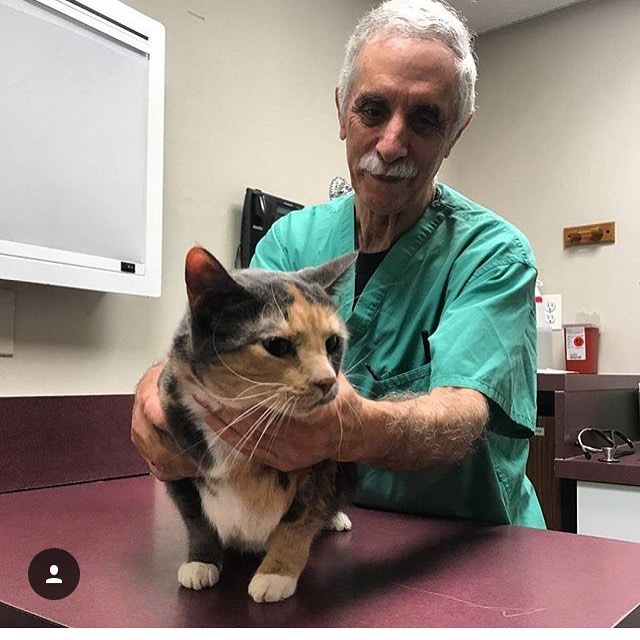I am a clinical veterinarian, not a researcher nor a pure scientist. My primary concern is for my patients and their owners, and my purpose in writing this article is to help you to best care for your cats during this crisis.
There have been very few reported cases of COVID-19 in domestic felines. Signs of infection in cats include respiratory symptoms such as coughing or sneezing, fever, lethargy, and decreased appetite. In nearly all known cases, the cats that were sick have recovered. There are no specific treatment protocols, other than basic supportive care, at this point.
When it comes to COVID-19, owners are the key to the health of our cats. According to the CDC (Center for Disease Control), the few pet cats that have been diagnosed with COVID-19 appear to have contracted the disease from their owners. Under experimental conditions, an infected cat can spread the virus to other cats housed in close living quarters, but this has not been seen with pet cats at home. There has been NO evidence of direct cat-to-owner transmission of COVID-19.
My advice to all cat owners is to follow local and state guidelines describing preventative measures for avoiding infections. Remember that the primary mode of transmission is through close contact with other people, especially in living quarters, tight workspaces and on crowded public transportation. Please, please, keep yourselves healthy, for your own sake and the sake of your cats!
Maintain distance where possible
Wear masks to help prevent spread of the disease
Wash your hands frequently, especially after touching surfaces that might have been exposed to other people
Good airflow is also important – keep windows open where possible
Frequently Asked Questions
Question: If I am sheltering in place, what do I do about my cat?
Answer: If you are self-isolating, then in effect, your cat is in isolation along with you. You don’t need to do anything else, other than making sure your cat stays indoors, too.
Question: If I get COVID-19 and have a cat, what should I do?
Answer: Keep your cat inside and away from other people and cats as much as possible. There is a small chance that your cat may also develop COVID-19. Most cats do not show signs of the disease, even if they are carrying it.
The CDC recommends that a sick person should have someone else care for your cat, where possible, and if not, the owner should wear a mask and wash before and after dealing with the cat. They also suggest you should “avoid contact with your pet including petting, snuggling, being kissed or licked, sharing food, and sleeping in the same bed.” This is sound advice, but not always practical, especially in a New York City apartment. If your cat seems sick, call your veterinarian for further instructions.
Question: I’ve heard that a test is available for veterinarians to test cats for the virus that causes COVID-19. Is it worthwhile for me to have my cat tested if he or she is not showing any symptoms?
Answer: The feline COVID-19 test requires taking blood. Curiosity is not sufficient reason to do this test on your cat. In general, it is not worth the pain and expense of performing a test unless it would change the treatment, prognosis or manner in which you care for your cat.
Question: Then what is the purpose of the test?
Answer: This test is both important and useful under certain conditions, but they are not common.
A cat might be tested if an owner has COVID-19 and has to leave home for medical reasons, which would leave the cat alone. If the cat is well and symptom-free, the best option would be for someone to come in daily to care for the cat in its own home. In this case the cat would not require testing, but the caretaker should minimize direct contact with the cat and be cautious about touching any contaminated surfaces in the home.
If the caretaker wishes to take the cat into their own home, they should discuss with their veterinarian whether or not the cat should be tested first. Some factors to take into account include the safety of other cats already living in the caretaker’s home and if humans at high-risk also live in the household.
If the cat is to be cared for also ill, or if it is well but there is no one else who can care for the cat at home, it should be brought to a veterinary clinic for care. Before admission, the cat will need to be tested for the virus. This will determine if the cat is has COVID-19 or not. It will tell the veterinary staff the level of precautions that need to be taken to protect themselves and other cats in the clinic.
At our clinic, we have the test available, but fortunately have not had any cases where it was needed, so far.
The bottom line? Prevention is the name of the game!
Your cat’s health is dependent on your health. Please be cautious; keep your cats indoors and follow the guidelines to keep yourself healthy, both for your sake and the sake of your cats.



